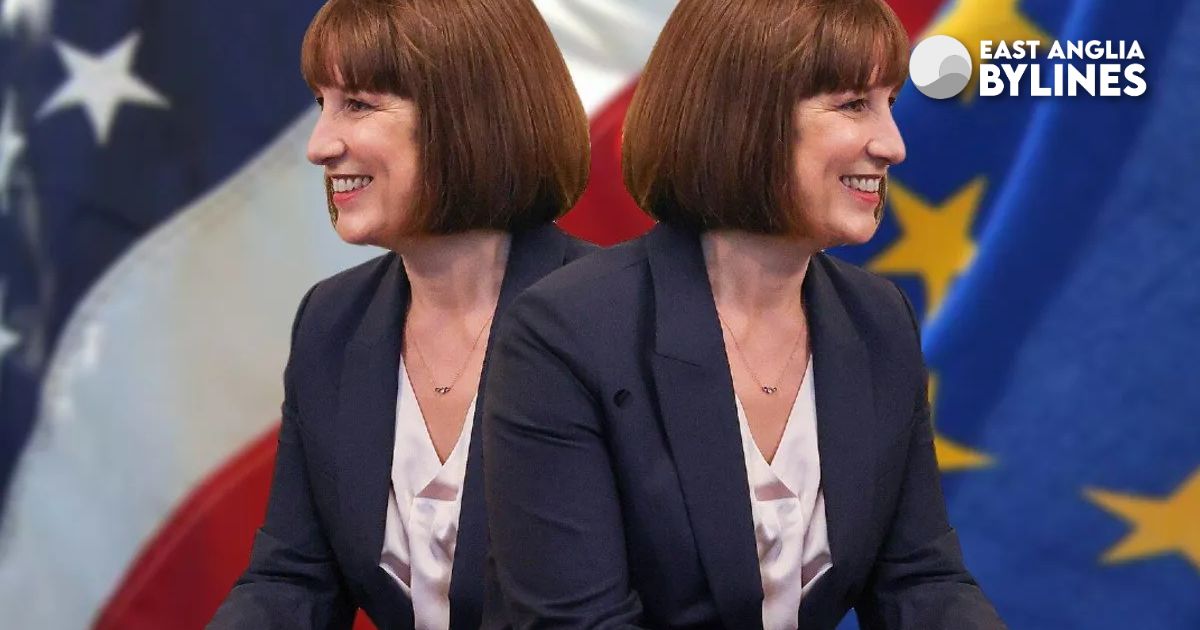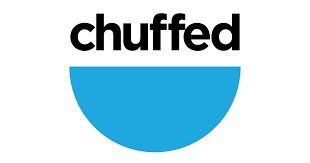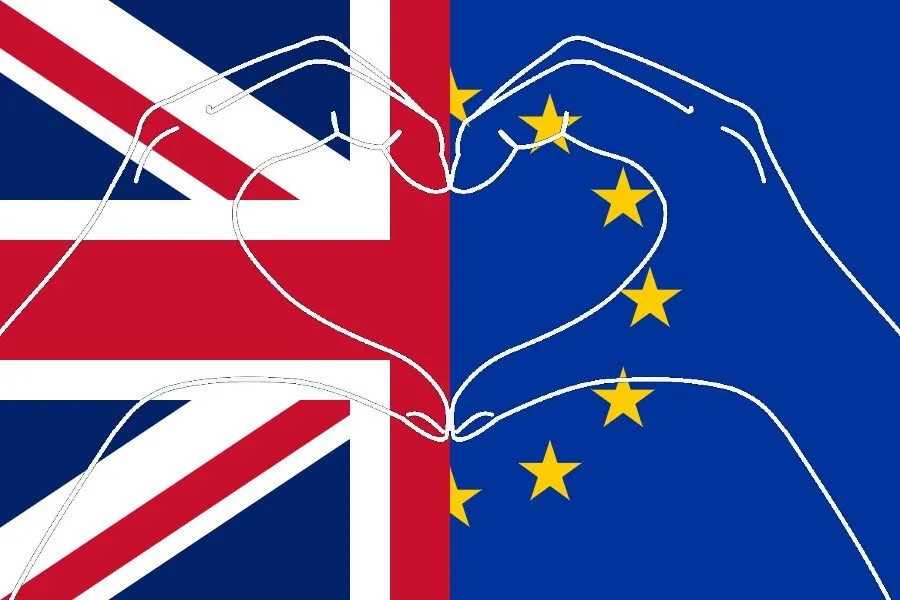
In our latest monthly UK/EU round-up, we assess the progress of the UK government towards its promised ‘closer relationship’ with the EU.
For April, there is again little tangible to report yet, although behind the scenes is probably a hive of activity. But first, a very sad Brexit-related blockage. Children with cancer can’t get the drugs they need due to Brexit red tape and costs. Parents must be asking why…
 Child cancer patient wearing a superhero costume in hospital. Image by Volies via Flickr (CC BY-SA 2.0)US or EU?
Child cancer patient wearing a superhero costume in hospital. Image by Volies via Flickr (CC BY-SA 2.0)US or EU?
In the face of the current US administration’s actions, just about everyone is pleading with the Government to align more closely with Europe, rebuild the trading relationship, or ‘unpick Brexit’. Labour’s biggest financial backers, Labour MPs, voters, even North American political commentators. Chancellor Rachel Reeves seems to agree but is still chasing that elusive US deal.
Some Conservative stalwarts from the Brexit days have formed the Conservative European Affairs Council to campaign for the UK to be more Europe-facing. Amber Rudd says that in the current world circumstances, “We’re all pro-Europeans now”. It’s a hostile world for a small country on its own outside trading blocs, and Britain’s attitude could leave it very isolated.
Safety in numbers
Other European countries are looking for a port in the storm of international turmoil. In addition to ten accession candidate nations, some countries long outside the European Union are rethinking: Norway, Iceland and Switzerland. And now Armenia has passed a law enabling its EU accession process to start. Is the UK an isolated outlier in Europe?
GDP growth
The organisation Best for Britain researches how to fix problems caused by Brexit. It commissioned some economists to carry out econometric modelling on the impact of US tariffs if the UK were to align with the EU on goods and services. This showed that alignment across all sectors (not just the SPS sector which is likely to happen) would result in 1.5% GDP growth, mainly in the Midlands and North. All within within the Government’s ‘Brexit red lines’. Their polling shows that voters in all constituencies want closer alignment with the EU.
US deal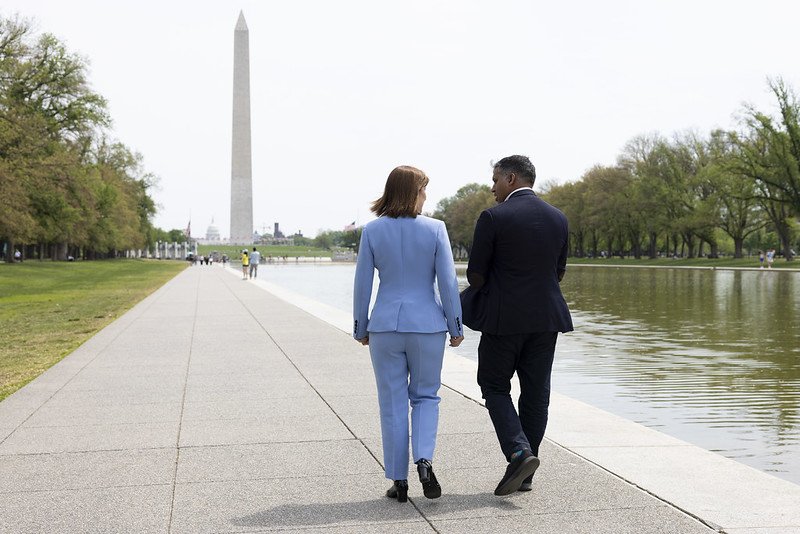 Rachel Reeves is in Washington for the spring IMF summit. Image by UK Treasury via Flickr (CC BY-NC-ND)
Rachel Reeves is in Washington for the spring IMF summit. Image by UK Treasury via Flickr (CC BY-NC-ND)
The UK is in a weak position and US leaders know it. As negotiations continue, there are questions about what conditions we may be forced to accept, for example in food standards. However in talks in America this week, Rachel Reeves said “we’re not going to be relaxing our food standards.”
But Reform UK leader Nigel Farage believes that UK consumers should accept chlorinated chicken from the US. His remarks about protecting our poultry industry from cheap US competition suggests that he sees UK chicken as high-end farmers’ market fare and US imports for lower budgets.
There is also concern that the government may be offering sweeteners like loosening online safety laws for American tech companies. Senior Labour select committee chairs are pushing for parliament to have a vote on any UK/US trade deal. Lord Sikka says that outside the EU, we are having to “scavenge” for any trade deal, and Parliament should have a “free vote on any deal with Trump”.
Summit
As we head towards the UK/EU Summit on 19 May, the debate conducted yesterday (24 April) on our EU trading relationship came at a good time. And discussions in Brussels between EU ambassadors ahead of the Summit have addressed defence and security issues.
Trade advisor David Henig sees progress in the preparations for the Summit. He says that agreeing future enhancements would “respond to President Trump’s attacks on Europe and trade by committing to progressively deepening the UK-EU relationship.”
The UK government says it will pursue a new partnership and “not return to the arguments of the past”. And there are subtle hints of progress. The long-debated youth mobility agreement is on the cards. The EU may now consider a time and number limit on youth visas, which the UK wants. The UK is apparently open to EU Court oversight of food exports, which is a step towards alignment.
Brexiters are concerned that Starmer will make concessions on fishing rights to achieve the defence pact. However, the defence industry is nearly nine times bigger than fishing, and of particular urgency at the moment. There are always trade-offs.
In a bind
The US/EU ‘choice’ is not simple. The government could continue trying to get closer to both the EU and the US, but as Chris Grey puts it, “all the time having to calibrate each relationship against what each of those parties will allow the UK to agree with either of the others. This is the degrading ‘sovereignty’ to which the Brexiters have consigned us.”
Given Trump’s tariffs chaos, Europe could be more dependable in trade agreements. But in the end, it’s not just trade. With the precarious security situation in Ukraine, the UK must decide who is a reliable partner.
More from East Anglia Bylines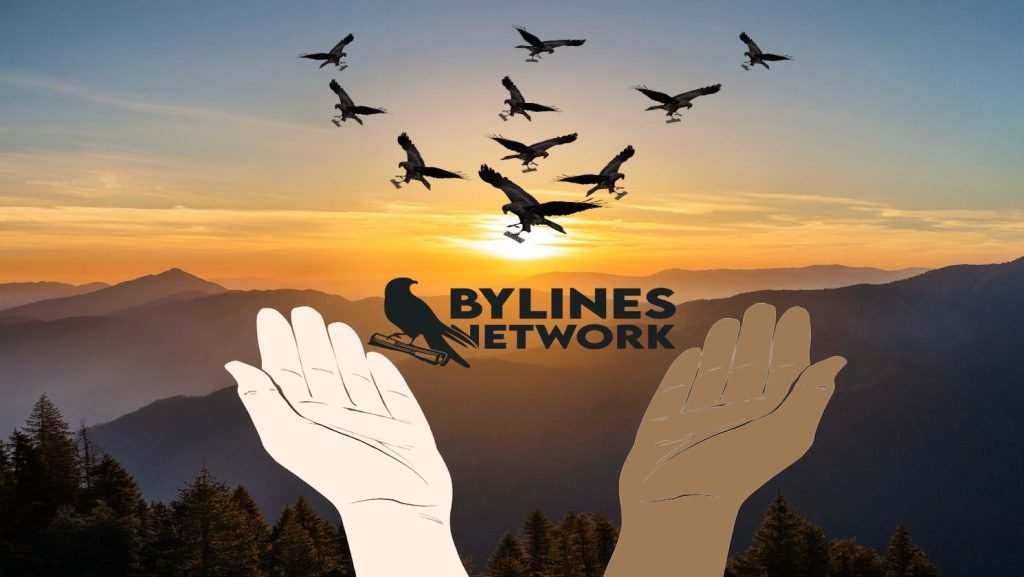
CLICK HERE TO DONATE TO OUR CROWDFUNDER
HELP US BECOME STRONGER SO THAT WE CAN CONTINUE TO DELIVER POWERFUL CITIZEN JOURNALISM!
